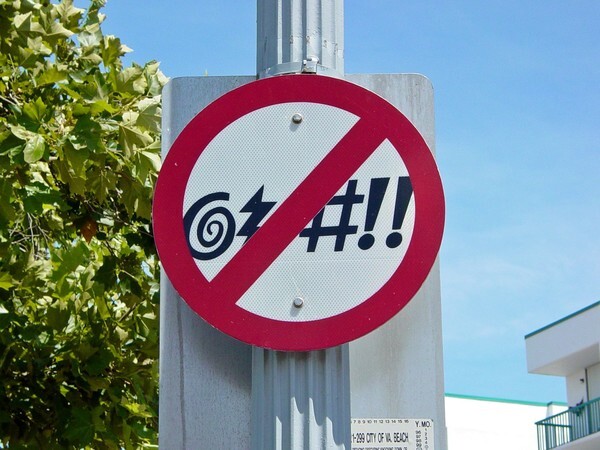
(Noah Silliman/Unsplash)
The misconceptions about Section 230 are fierce, and some of them came up last week after I posted a Tedium item that compared Facebook’s role as the dominant force in social networks to that of AT&T, and how AT&T, despite its 1984 breakup, is now actually a much more powerful company.
Part of it was the angle I took—I come down on the side of the 50-yard line in favor of Facebook using its powers under Section 230 to moderate in cases of misinformation and propaganda. (Section 230 was literally inspired by court decisions that barred the early online network Prodigy from moderating itself—and, fun fact, the case that led to Section 230 involved Stratton Oakmont, the company at the center of The Wolf of Wall Street.) Because, while Facebook is large enough to have its own Supreme Court, it is really a company under the rules of the U.S. government, and the carve-outs that exist for it allow it to sway what stays on its platform, and what goes. It just has to use them.
When you’re on a social network, you’re essentially experiencing life inside a society blocked off by a gigantic dome, where things seem free and open, but in reality, you’re living in someone else’s house. Unfortunately for you, that house looks almost exactly the same as the open internet. The entrance has perfectly-coiffed lawns surrounding it. But the problem is, once you get inside, things get really hairy. The grass gets really long the further in you get, and there are some dark corners you can turn into. As hard as the social networks try, however, they can never fix these issues because they’re hard and they worry it might scare some of their users off.

Is swearing the real problem? (Ben Schumin/Flickr)
But they will nail people for things that don’t really bother anyone, along the lines of Virginia Beach’s infamous no-swearing law. In part it’s because they haven’t put a lot of work into workable moderation; in part, it’s because they’re focused on saving money through automation.
This pleases nobody, because the people who think this place is free are mad about arbitrary decisions, and those who want to use social media free of harassment are concerned about the toxic environment that’s allowed to linger.
So what can we do about this? Ultimately, because Facebook is a business and not a government, it can moderate itself as it sees fit. As a customer of Facebook, you can deactivate your account whenever you want. It may be a really big business, but it’s still a business, and unlike AT&T in the 1960s, you aren’t completely forced to use them to access the service.
This concept applies to any social network you can think of.

(Andres Siimon/Unsplash)
So does this next concept: I encourage anyone who finds this problematic or frustrating to embrace the open internet, which is a little more knotty, sure, but you can’t beat the freedom. Buy yourself a plot of land on the digital frontier. It might be a website on a server farm, or you might just buy a Raspberry Pi and host it yourself. But it’s yours and you can say whatever you want. You can even connect with friends who also choose to rely on the open internet to communicate.
Technologies are improving to make this more possible and free than ever—for one, the emerging IPFS promises to make it possible for your content to theoretically live online forever, miles away from a walled garden, with no risk of the content being removed. Second, open digital environments could use the bodies, and what’s keeping you with Facebook anyway? Your family and friends?
Now, to be clear, there are limits, because the world is a realistic place: Your host or your ISP might consider your content dangerous or risky, and they might kick you offline. Which they have every right to do, because they’re a business, and you’re not wearing a shirt or shoes, and they can deny you service.
Just because you have the right to say whatever you want on the internet doesn’t mean that there aren’t gatekeepers everywhere who don’t want to be associated with the messy parts of your freedom.
Time limit given ⏲: 30 minutes
Time left on clock ⏲: 1 minute, 33 seconds



